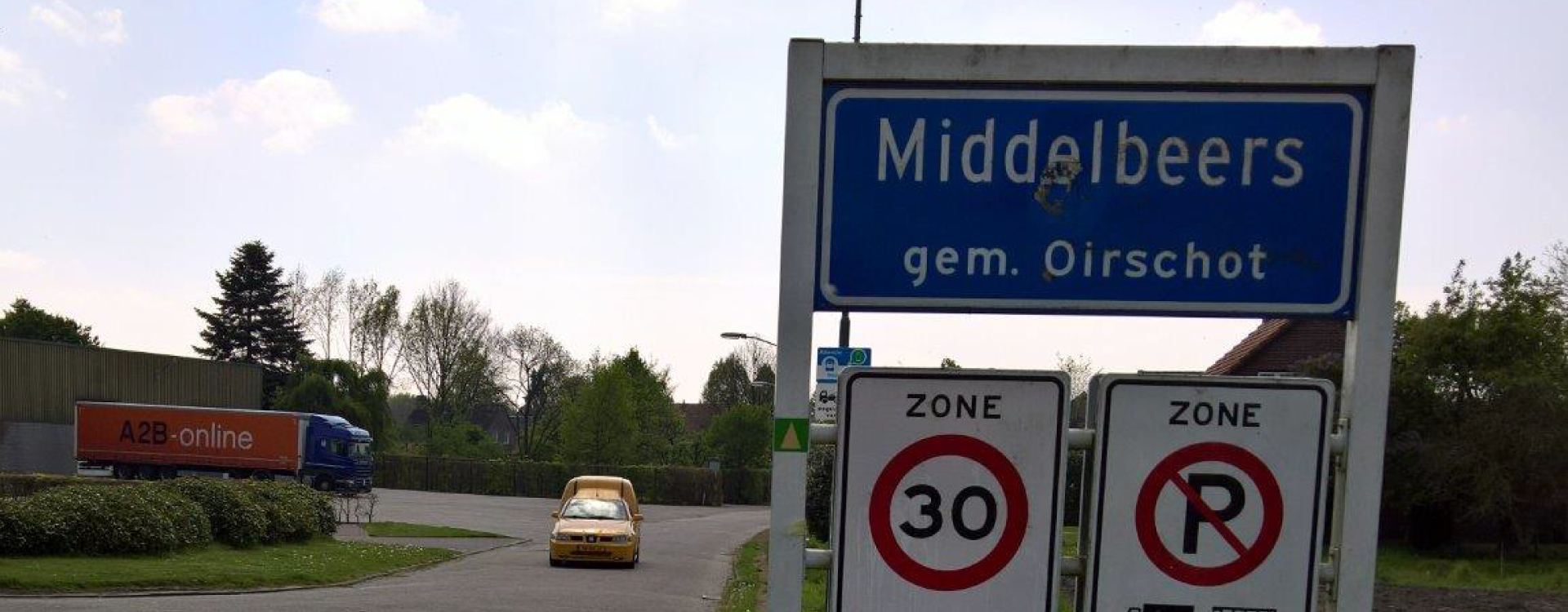The faded glory of a Sunday
Middelbeers
When we entered Middelbeers, I made a joke. ‘Ha ha, busses cannot even park in Middelbeers’. After ordering our drinks we checked the bus stop schedule to see how much time we would have to drink them. And of course, the bus was off duty. There is no public transport at all on the weekends in Middelbeers. Our waiter confirmed it. Oh, if we had only checked 9292 or my own TMWalker.
I had never experienced the termination of a bus journey due to it not being profitable anymore. Just like any other company, carriers are extra interested in lines that give them the most profit, so buses with a high occupancy rate and regional train lines. Can you blame them? The same thing is going on in the rail market, where NS holds on to the bigger, main routes and leaves the smaller, regional ones to smaller carriers. Reputable carriers drop their smaller lines as these make the least amount of money. Dropping them boosts their average profit and that’s good management, right? Hmmm, why does this sound so familiar?
The bottom of the market
The bottom of the market. That’s where it happens. This is what Clayton Christensen of the Havard Business School ensured me in “The innovator’s Dilemma“, one of the best books ever written about innovation. The most disruptive innovation takes place at the bottom of the market, innovation that changes the business extremely. If this initiative survives the bottom, the organizations will start to invest and its quality will graduadly rise, which pushes the bigger players up.
“I don’t believe it works that way”, I can hear you think, “There are neighboorhood busses and volunteers” and “it’s an unregulated market with concessions and long-lasting contracts that prohibit concurrence”. I can easily mention ten markets that changed in the same way, structurally. Take photography (Kodak), for example, computers (mainframe->pc->smartphone), encyclopedias (Wikipedia), video rental (Netflix). Or take a quick look at Uber or DIY app builders. We can only wait what the future will bring, but I expect a great shift within the next 10 years.
Solution
In our specific case, we took a taxi to our car. The owner of the taxi company took us with his 16-person bus on his free Sunday for a short drive from Middelbeers to Spoordonk, as this was apparently profitable for him. He gave us his business card as he also did larger group transportation. We could always call him. Sadly, we had to pay this monopolist an actual taxi-price :-(. His average occupancy rate (to and fro): 2/16/2 = 6.7%.
In Uden there is an old ZuidOoster bus stop, where our city poet Maarten van den Elzen described the essence of this blog beautifully in 2008: “De dans van het zilveren en koperen muntgeld” (The dance of the silver and copper coin).



0 Comments